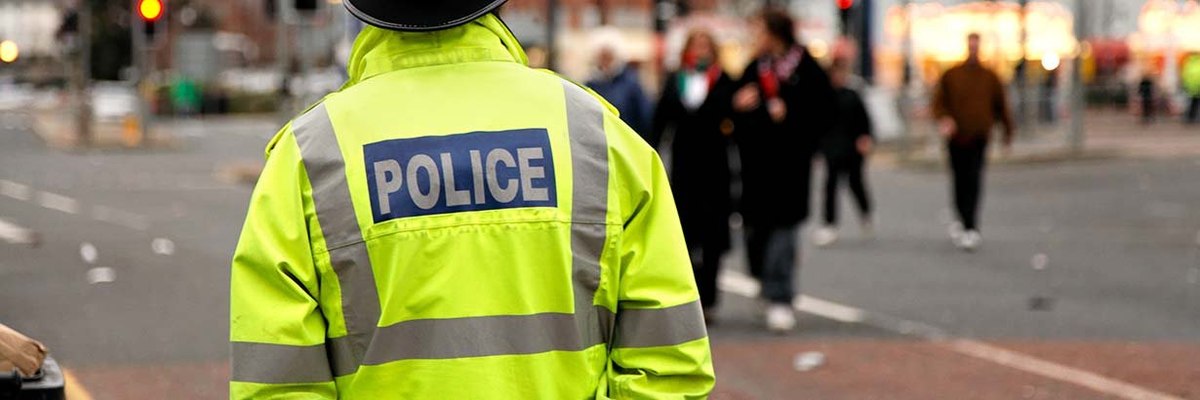The majority also consider it unlikely those committing such crimes will be caught and convicted
Earlier this month, in a report released by HMICFRS – the police watchdog – said that police forces are failing to adequately investigate cases of burglary, robbery and theft in England and Wales. Recent Home Office figures show that, in the year to March 2022, just 6.3% of robbery offences and 4.1% of thefts in England and Wales resulted in charges.
One such recent victim of police indifference is BBC economics editor Faisal Islam, who tweeted his experience with the police failing to investigate his stolen bicycle.
Now a new YouGov political survey shows that most Britons lack confidence that the police will even bother to try and properly investigate a whole host of crimes, with bicycle theft coming right at the top.
Islam turns out to be one of the 77% of Britons who don’t expect that the police will try and properly investigate bicycle theft, the highest level for any of the 15 crimes we asked about. Just one in nine Britons (11%) think the police would attempt to pursue leads and catch the culprit.
An investigation by the Telegraph recently found that in 87% of the 24,000 neighbourhoods that saw a reported bicycle theft in the last three years, not a single case was ever solved.
Coming in joint second on the list of crimes that Britons don’t expect the police to attempt to investigate properly are mobile phone or purse snatching, and phone or internet scams, with both on 70%.
Aside from those crimes already mentioned, at least half of Britons don’t expect the police to put effort into solving shoplifting (67%), anti-social behaviour (65%), ‘theft’ in general (64%), burglary of the home (54%), or ‘minor violent assault’ (51%).
When it comes to more major crimes, there is substantially less scepticism. Just 4% of Britons don’t think the police would properly investigate a murder, with 89% expecting that they would. One in eleven (9%) say the police wouldn’t bother to properly investigate ‘serious violent assault’, 12% say the same for rape, 13% for knife crime, and 16% for sexual assault.
Notably, the biggest differences in perceptions between social groups are between generations. For example, while 41% of those aged 18-24 think the police would not try to investigate ‘theft’ properly, this rises to 73-74% among the over-50s. In fact, almost all of the cases where there is a big difference in expectations between old and young are to do with crimes that involve stealing. Given the official crime figures, this could suggest a naivety of young people to – or a lack of bitter experience of – the police’s approach to such crimes.
By contrast, partisan differences are relatively limited across the board, meaning this lack of confidence in the police is generally shared across the political spectrum.
Most Britons also believe it is unlikely criminals will face justice over a whole host of crimes
While the police properly attempting to investigate a crime is obviously integral to the process, justice cannot be considered done until a criminal has been hauled in front of a court, tried, and sentenced. So how many Britons are confident that this will happen?
Again, the public are highly sceptical. Bicycle theft once more tops the list, with 84% thinking it unlikely that bike thieves will be served justice, including 55% who consider it “very unlikely”. A mere 6% think the odds are high that cycle stealers will find themselves sentenced in court for their misdeeds.
As before, phone and internet scams and mobile phone and purse snatching come next, with 80% of Britons thinking that people who commit such crimes stand good odds of never finding themselves in front of a judge receiving punishment. Just 8-9% think it is likely that they will.
Most Britons likewise believe that it is unlikely that anti-social behaviour (75%), shoplifting (72%), ‘theft’ in general (73%), burglary (64%) and ‘minor violent assault’ (63%) will get punished.
Again, murder comes bottom, with 8% considering it unlikely a murdered would face justice. More than eight in ten (83%) think it is likely, including 47% who think it “very likely”.
Combining the two sets of results uncovers significant confidence gaps between how many people expect the police to properly investigate a crime and how many expect that a criminal will actually get convicted for it.
The two sex crimes we included in the survey come in the top three, with a 21pt gap between the number of people who think rape will be investigated properly and the number who think it is likely that a rapist will be caught and sentence, and likewise a 17pt gap for sexual assault.
These gaps are slightly wider still among women than men – although both groups are equally likely to think the police will properly investigate rape and sexual assault cases, women are slightly less likely than men to expect rapists (-4pts) and sexual assaulters (-7pts) to be convicted.
That these confidence gaps are so high could reflect a greater awareness among some – although clearly not all – that sex crimes in particular are rarely resolved. In 2021 a mere 1.3% of reported rapes led to a prosecution, the lowest rate for all crimes.
Confidence in achieving convictions is also disproportionately lower among the general public when it comes to knife crime (18pts) and robbery (17pts).
Photo: Getty






